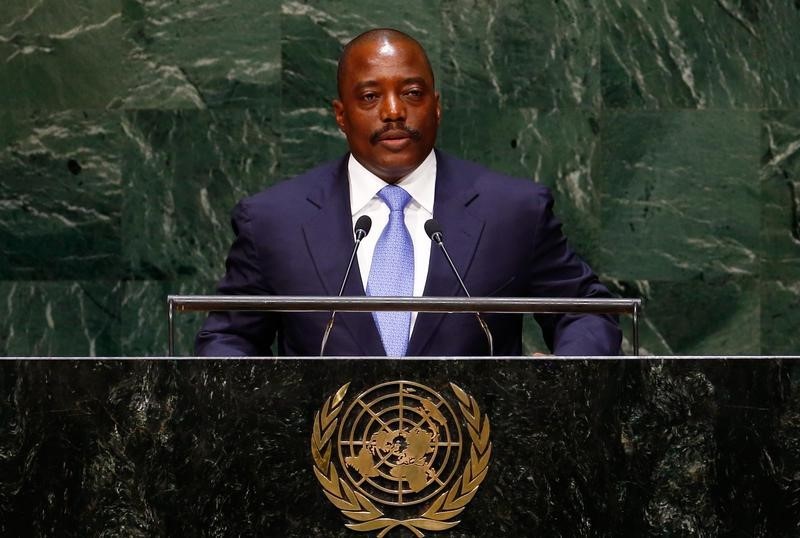KINSHASA (Reuters) - Western powers have urged Democratic Republic of Congo to withdraw or re-draft divisive changes to electoral law due to be voted through on Thursday, after three days of deadly protests over the legislation, diplomatic sources said.
Opposition activists took to the streets saying the planned changes were a government ploy to delay national elections and keep President Joseph Kabila in power.
At least 42 people have been killed in clashes with security forces, said one campaign group. The government said 15 people, most of them looters, have died.
Envoys from the United States, Britain, France and former colonial power Belgium met Senate President Leon Kengo Wa Dondo on Wednesday, a diplomat said, the day before a Senate vote on the legislation which has raised fears of further violence.
"They invited the president of the Senate to take into consideration the tension that was prevailing in Kinshasa and other towns of the country," the diplomat told Reuters, asking not to be named.
"They urged him either to suspend the modifying law or to remove the incendiary provisions," the diplomat said.
The new law would order a census before the next election, currently scheduled for 2016.
The opposition says the census would take years to organise in a poor nation the size of Western Europe and would extend Kabila's rule beyond his 2016 term limit. The government has denied this.
The ambassadors would meet the president of the national assembly Aubin Minaku on Thursday to convey the same message, the diplomat added.
"Kengo is very adamant to diffuse the situation. They (the government) are very aware of the possible repercussion," a second diplomat said.
Congo's Senate was due to vote on the bill on Thursday after it was approved by the lower house on Saturday night.
Kinshasa was mostly quiet on Thursday morning.

Opposition leaders and student leaders of the University of Kinshasa, the site of some of the fiercest confrontation, said they would wait for the Senate vote before deciding on their next move.